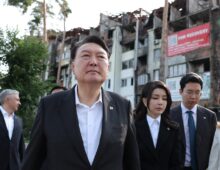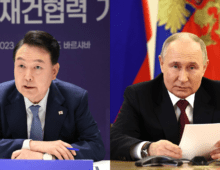Seoul will find it difficult to balance relations between U.S. and China due to intensifying great power competition
Despite the well-wishing from South Korea and China to mark the 30th anniversary of diplomatic relations, Beijing’s intensifying rivalry with the U.S. looks set to fundamentally limit those ties going forward.
On Wednesday evening, leaders Yoon Suk-yeol and Xi Jinping marked the occasion by exchanging letters expressing their desires for “new directions of cooperation” and a “substantive friendship.”
Despite the well-wishing from South Korea and China to mark the 30th anniversary of diplomatic relations, Beijing’s intensifying rivalry with the U.S. looks set to fundamentally limit those ties going forward.
On Wednesday evening, leaders Yoon Suk-yeol and Xi Jinping marked the occasion by exchanging letters expressing their desires for “new directions of cooperation” and a “substantive friendship.”
Get 30 days
of free access to
KoreaPro
Full access to all analysis
The KOREA PRO newsletter, every business day
Daily analysis on the top story of the day
The ability to suggest topics for coverage by our specialist team
Be smart about South Korea
Get full access to expert analysis and opinion.
Start now
No charges during your trial. Cancel anytime. A paid subscription will start after 30 days.
© Korea Risk Group. All rights reserved.
No part of this content may be reproduced, distributed, or used for
commercial purposes without prior written permission from Korea Risk
Group.












